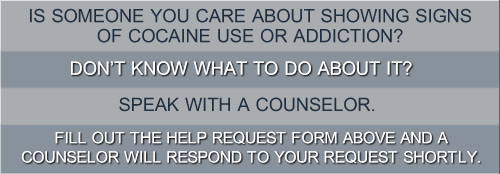
Identifying Cocaine: Pictures
Cocaine is a stimulant that causes very intense feelings of euphoria in the user. It permanently changes the chemistry of the brain permanently and although it is not physically addictive it is one of the most psychologically addictive stimulant currently available. Cocaine is a controlled substance that is very old and was used in ancient times by farmers to stave off hunger from chewing on the coca leaf. Cocaine is a dangerous and habit forming drug.
Cocaine is currently a schedule II drug which means that it can be prescribed by doctors and can be possessed but only if the user has a prescription for it. Cocaine was very useful as an anesthetic before more effective ones were found but now it has been replaced almost entirely in the medical field.

(CC of picture of cocaine medicine)
Cocaine usually looks like a white powder that can be snorted or taken orally. When users take cocaine orally they rub it on their gum which causes the user to feel numb and sometimes the user might actually swallow the cocaine. Cocaine can also be used intravenously but this is less common and the most dangerous way to consume cocaine. Users are at higher risk of respiratory issues and a cardiac arrest. Users are also more at risk of acquiring a sexually transmitted diseases like HIV.

(cocaine powder CC license author freshandfoodie)
Cocaine can be smoked as it but it is less common. When this is done, users might wrap cocaine up with other drugs like cannabis and smoke it in a hand rolled cigarette at the same time. Smoking is much more common when it comes to crack cocaine, which is cheaper to produce and buy. Smoking is usually done from a glass pipe. Unlike cocaine, crack cocaine is hard and cannot be snorted. Crack is very addictive and users are more at risk of adverse effects and it may cause cardiac arrest, mental health illness and in some extreme cases it might even cause death.

(crack cocaine under CC from DEA website)
Cocaine causes the user to feel immediate euphoria and decreases appetite. It causes mental alertness, increased heart rates and blood pressure, dilated pupils, mental alertness and constricted blood pressure. The intensity of the feelings depends on the dosage, the way that the user has consumed it, and how long the user has been using cocaine for. The long term effects of cocaine an include intense psychological addiction, problems with the users sinuses, the user might feel irritable, anxious, paranoid and could experience hearing and visual hallucinations. The user might also have a harder time feeling happy since the dopamine producing part of his or her brain might be permanently altered. If you or someone you love is drug dependent or addicted contact a mental health professional that specializes in addiction to find the help you need.
- Questions?
